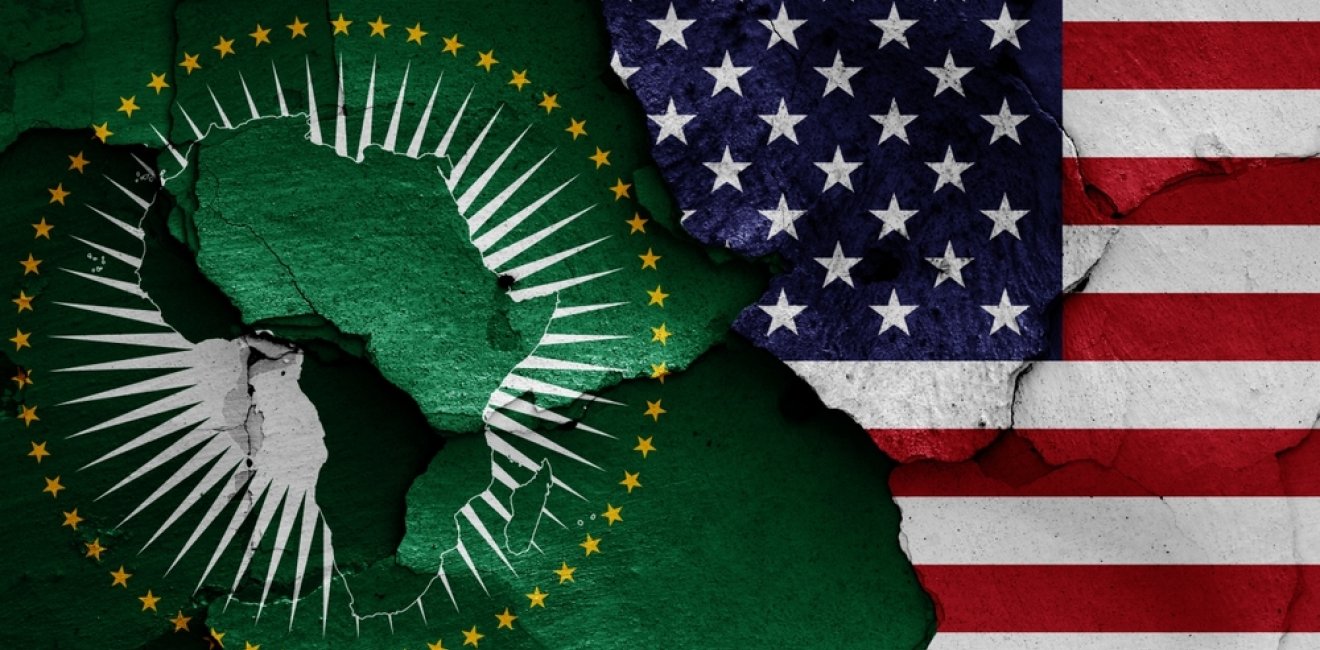
A blog of the Africa Program
After a protracted and intricate 16-year funding battle between the United Nations Security Council (UNSC) and the African Union Peace and Security Council (AUPSC), the UNSC decided for the first time to finance AU Peace Support Operations last December. What's intriguing though, is why the Council took so long to approve Resolution 2719 and how each Permanent Five (P5) member state—especially the United States (U.S.)—helped to both stall and eventually approve the resolution.
Since 2007, the African Union has fought to persuade the UN to help pay for the regional organization’s peacekeeping operations with UN-assessed contributions. The A3 member nations—Ethiopia, Equatorial Guinea, and Côte d'Ivoire—proposed a resolution in 2018 requesting such funding, at least on a case-by-case basis. The U.S., however, opposed the initiative until December 2023, when it shifted course.
During several UNSC debates on the matter, the United States and Russia opposed directly funding African organizations, arguing that funds intended for UN peacekeeping should not be used for non-UN missions. The United Kingdom and France, on the other hand, were generally in favor of using UN-assessed contributions to fund AU peace support operations, if the UNSC decided to do so. While Russia did not openly express its opposition, both the United States and Russia —most especially throughout the Trump administration—continued to oppose it. “The United States and Russia have always taken a fairly principled stance,” argues Paul D. Williams, a professor of international affairs at George Washington University. "If you set a precedent that you pay UN peacekeeping funds directly to another organization, it means that other organizations similar to the AU would also make similar requests — and Russia and the U.S. wouldn't want to do that," he added. Chief among UN member states’ concerns is that the majority of African nations suffer from high levels of accountability problems, development financial misuse, and corruption.
Yet, pressure to re-evaluate UN-assessed funding for AUPSOs has increased as a result of the achievements of AU peace support operations in Somalia, Mali, and Darfur. Meanwhile, rival nations like China and Russia's Wagner Group are using mercenaries to undermine Western-backed security interests and values in Africa, and they are making traditional UN peacekeeping missions increasingly more difficult. Indeed, nations like Mali and the Democratic Republic of the Congo have recently ceased their cooperation with UN peacekeeping missions. In this context, it made sense for the UNSC to reconsider funding the AUPSC’s regional peacekeeping initiatives.
Why the U.S. moved from Stalling to Supporting Funding for Non-UN Missions
As the largest contributor to the United Nations, the U.S. remains a serious power broker in the UNSC.
The Biden administration was initially undecided about the matter of sponsoring non-UN missions, but the threat posed by China’s and Russia’s growing influence and political activities on the continent changed the administration’s calculus. For example, Mali is now being used by China as a testing ground for new weaponry. Meanwhile, in parts of the Sahel, including Mali, Russia’s Wagner Group mercenaries have replaced UN troops and French forces. Concurrently, they have backed coups and infiltrated both the Central African Republic and the Democratic Republic of the Congo. With such threats, America had to stand up to protect its security and values interests in Africa by revisiting conversations in the Security Council on how to support African Union peace support operations. By doing so, the U.S. maintains the AU as an ally while creating a more level playing field for advancing its security interests in Africa.
In its revisions to the original AU plan, the United States asked that the UNSC and the AUPSC split the expense of funding AU peace support missions. The U.S. recommended that the UNSC pay for 75% of the AU's expenses, and that the AU cover at least 25% of the costs. Additionally, the United States pressed for the AUPSOs to adhere to the UN Human Rights Due Diligence Policy (HRDDP), a demand that China and Russia protested.
China emphasized the need to respect the AU's sovereignty in decision-making when deploying AUPSOs and rejected the United States' stringent demands on human rights. During the negotiations, Russia sided with China on almost all topics, but concentrated on the financial structures and procedures in the text. China and Russia did not participate in the voting.
With the adoption of UNSCR 2919, the UNSC now has an extra weapon to aid peacekeeping missions in situations when traditional UN missions might not be the most appropriate or ideal approach. AUPSOs are then a game-changer in such situations.
Author

Africa Program
The Africa Program works to address the most critical issues facing Africa and US-Africa relations, build mutually beneficial US-Africa relations, and enhance knowledge and understanding about Africa in the United States. The Program achieves its mission through in-depth research and analyses, public discussion, working groups, and briefings that bring together policymakers, practitioners, and subject matter experts to analyze and offer practical options for tackling key challenges in Africa and in US-Africa relations. Read more

Explore More in Africa Up Close
Browse Africa Up Close
The Innovative Landscape of African Sovereign Wealth Funds



